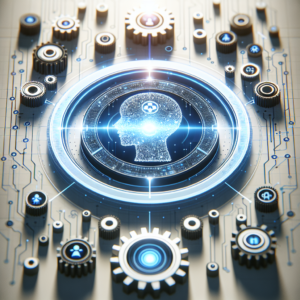What if I told you that the future of healthcare is not just about advanced medicines and surgical techniques, but also about smart technologies and innovations that enhance patient care and operational efficiency? In a world that is continually evolving, the healthcare sector isn’t left behind. Innovations are transforming how we approach patient care, diagnosis, and overall health management. Let’s journey through some of these exciting developments that are paving the way for smart healthcare solutions.
The Rise of Smart Healthcare
Over the years, I’ve witnessed the healthcare industry undergo a significant transformation. This shift isn’t merely aimed at improving patient outcomes but also at making healthcare more accessible, efficient, and personalized. Smart healthcare integrates technology into every aspect, enhancing the capabilities of healthcare providers and delivering better experiences for patients.
Defining Smart Healthcare
Smart healthcare refers to the use of advanced technologies, including artificial intelligence (AI), the Internet of Things (IoT), and big data analytics, to improve health monitoring, diagnosis, treatment, and overall service delivery. These technologies work in tandem to create a more holistic approach to health management.
Key Components of Smart Healthcare
-
Telehealth Services: I find telehealth to be one of the most impactful innovations in recent years. With video conferencing, patients can consult with healthcare providers without the need to visit a facility. This is particularly beneficial for those in remote areas or with mobility challenges.
-
Wearable Devices: Wearable technology has become a staple in my daily routine. Devices like smartwatches and fitness trackers continuously monitor health metrics such as heart rate, sleep patterns, and physical activity, providing valuable data that I can share with my healthcare provider.
-
AI-Powered Diagnostics: AI algorithms are enhancing diagnostic accuracy by analyzing vast datasets faster than any human could. I’ve learned that this technology can help in early detection of diseases, improving outcomes significantly.
-
Electronic Health Records (EHR): EHR systems streamline patient data management, allowing for seamless information sharing among healthcare providers. I appreciate how this minimizes errors and enhances the quality of care.
-
Remote Patient Monitoring (RPM): RPM uses technology to monitor patients’ health data outside clinical settings. This means my healthcare team can keep track of my health even when I’m at home.
Innovations in Smart Healthcare
Now that I’ve set the stage, let’s look at some of the specific innovations that are currently driving smart healthcare solutions.
Artificial Intelligence and Machine Learning
Artificial intelligence and machine learning are transforming how I interact with healthcare. These technologies enable the analysis of vast amounts of data to identify patterns, predict outcomes, and personalize treatments.
Natural Language Processing (NLP)
Natural Language Processing allows healthcare providers to convert unstructured data into actionable insights. I’ve noticed that this technology helps in extracting important information from clinical notes, making it easier for healthcare professionals to make informed decisions.
Predictive Analytics
Predictive analytics in healthcare helps forecast disease outbreaks and patient admissions. For instance, I read about a case where hospitals could predict a surge in flu cases and staff accordingly, ensuring patients receive timely care.
IoT in Healthcare
The Internet of Things has connected devices that can communicate vital health data in real-time.
Smart Medical Devices
I am fascinated by smart devices like insulin pumps and heart monitors, which automatically transmit patient data to healthcare providers. These devices help in timely interventions, enhancing my overall care experience.
Home Health Monitoring
IoT technology enables home health monitoring systems. This means I can be monitored from the comfort of my home, which significantly enhances my convenience and peace of mind.
Blockchain Technology
Blockchain isn’t just for cryptocurrencies; it’s gaining traction in healthcare as well.
Data Security and Integrity
Blockchain offers a secure way to store and share patient records, ensuring they are tamper-proof. I appreciate knowing that my medical data is protected and can be reliably shared with authorized personnel.
Improved Supply Chain Management
In logistics, blockchain helps track pharmaceuticals through the supply chain. This reduces the risk of counterfeit drugs entering the market, which is crucial for maintaining safety.
Enhancing Patient Engagement
Another key aspect of smart healthcare is improving patient engagement. Engaged patients tend to have better outcomes, which I find encouraging.
Patient Portals
Patient portals allow me to access my medical records, test results, and communicate with my healthcare provider. These portals offer a streamlined approach to managing my health and engaging with my care team.
Mobile Health Applications
Mobile health applications empower me to track my health and wellness in real-time. From medication reminders to health-fact resources, these apps help keep me accountable for my health.
Personalized Communication
Thanks to advancements in AI and data analytics, healthcare providers can now deliver personalized communication tailored to my health needs. This personalized approach makes me feel valued and understood.
Addressing Challenges in Smart Healthcare
While innovations bring exciting opportunities, they also come with challenges. I’ve encountered some common obstacles in implementing smart healthcare solutions.
Data Privacy Concerns
With the increasing reliance on digital health records and IoT devices, concerns about data privacy are more relevant than ever. I’m cautious about sharing my health data and want assurance that it will be used responsibly.
Technology Adoption
Not everyone is tech-savvy, and some individuals may struggle to adapt to new healthcare technologies. I’ve witnessed situations where patients missed out on valuable services simply because they were uncomfortable using technology.
Regulatory Issues
The healthcare landscape is heavily regulated, and innovations can sometimes face legal hurdles. I find that regulations can slow the adoption of beneficial technologies and limit their potential.
The Future of Smart Healthcare
As I look ahead, I’m optimistic about the future of smart healthcare. The continuous advancement in technology will feel like a game-changer.
Integrating Virtual Reality (VR) and Augmented Reality (AR)
I’ve realized how VR and AR can revolutionize training for healthcare professionals. These technologies offer immersive simulations, improving skills and reducing errors, which ultimately contributes to better patient care.
Ethical AI in Healthcare
An emerging focus is on ensuring that AI in healthcare is ethical and unbiased. I am hopeful that adopting strict guidelines will create a fair and equitable health system.
Collaborative Care Models
Smart healthcare promotes collaborative care models where various healthcare professionals work together seamlessly. I believe this teamwork can lead to improved patient outcomes.
Global Health Initiatives
Innovations in smart healthcare have the potential to improve global health outcomes. I see the possibility of remote areas having access to quality healthcare through telemedicine and mobile health solutions.
Real-World Examples of Smart Healthcare Solutions
Let me share some examples of smart healthcare solutions that exemplify these innovations.
Case Study: Remote Patient Monitoring
Consider a healthcare facility that implemented RPM for patients with chronic diseases. By equipping patients with IoT devices that monitor vital signs, healthcare providers could receive alerts about any concerning changes. This proactive approach resulted in a 30% reduction in hospital readmissions.
Case Study: Telehealth during COVID-19
During the COVID-19 pandemic, telehealth services surged. I saw many healthcare providers quickly adapt to virtual consultations, making it easier for people to receive care without the risk of exposure. This shift highlighted the importance of technology in crisis management.
Case Study: AI in Radiology
A hospital that integrated AI in its radiology department showcased remarkable results. The AI was able to analyze radiology images with 95% accuracy, aiding in faster and more accurate diagnoses. This not only improved patient care but also reduced the workload on radiologists.
Conclusion
As I reflect on these innovations driving smart healthcare solutions, I can’t help but feel excited about the future. The combination of technology and healthcare not only aims to enhance my experience as a patient but also ensures that healthcare providers have the tools they need to deliver excellent care.
I’ve learned that while challenges exist, the potential for improved healthcare is nearly limitless. As we continue to embrace these innovations, I look forward to a future where healthcare is even more efficient, accessible, and patient-centered. In this evolving landscape, I’m certain that we can achieve a healthier world together.






